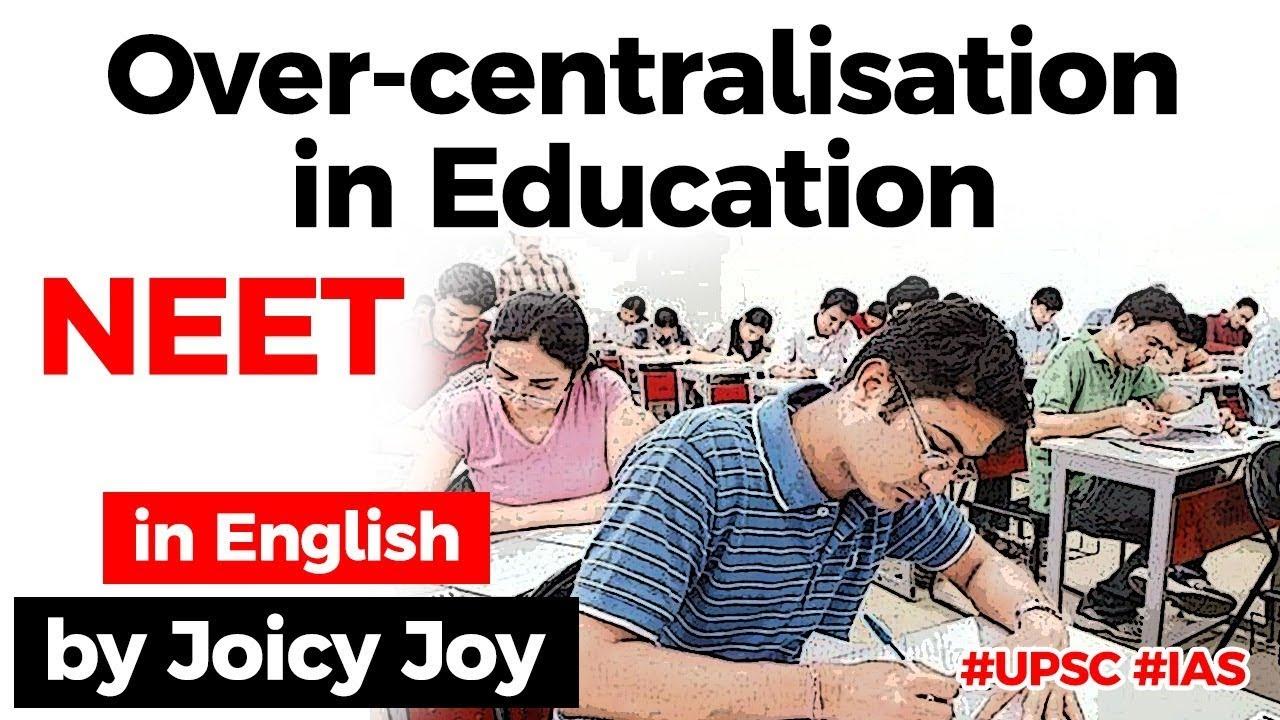Table of Contents
- The NEET (National Eligibility-cum-Entrance Test) for medical courses is becoming a sign of over-centralisation in education.
- The interests of democracy call for arresting the trend towards the governmental domination of the educational process.
Judicial Pronouncements
- NEET was initially struck down as unconstitutional in Christian Medical College, Vellore (2013) case by a 2:1 majority.
- In 2016, a review of this judgment was allowed.
- Also, the dissenting judge of the 2013 judgment made NEET compulsory even prior to a full hearing by the constitution Bench.
- In April 2020, the Supreme Court held that there was no fundamental right violation in prescribing NEET for medical courses admissions.
Observations by the 1948-49 Commission
- The Commission was appointed by the Government of India to report on Indian University Education and suggest improvements and extensions.
- Freedom of individual development is the basis of democracy.
- Exclusive control of education by the government has been an important factor in facilitating the maintenance of totalitarian tyrannies.
NEET – Criticism
- Over-centralisation
- Assault on the autonomy of universities and higher education institutions, particularly private, unaided ones.
- In the name of state’s power to “regulate”, the rights of unaided private institutions and minority institutions cannot be violated.
- Coaching institutes are prospering.
- Since most of them are in cities, poorer students from a rural background face a disadvantage.
- Vernacular medium students.
- NEET paper was leaked twice in the last four years – NEET’s fairness and transparency.
- Issue of wrong translation – In the 2018 NEET, as many as 49 questions had errors in Tamil translation.
ISSUE OF MERIT
- Meritocracy requires competition and equality of opportunity.
- It is unclear if NEET is adequately measuring the multidimensional construct of merit.
- Empirical research in the U.S. on such tests reveals that these tests are biased against the poorer and underprivileged sections of population.
- Thus, there is also an element of ‘class’ in NEET, which the Indian judiciary has so far overlooked.
DIFFERENTIAL TREATMENT
- Minority rights are not the violation of the equality provision in Article 14.
- Due to centralised counselling, several minority institutions and private medical colleges are unable to fill their seats.
- This is an encroachment of their rights.
- India has extremely poor doctor-population ratio.
ALTERNATIVES
- T.M.A. Pai Foundation case-
- The Court had held that admission by the management can be by a common entrance test held by “itself or by the State/University”.
- Notably, here, universities and states were treated on a par, and the admission tests conducted by them as well.
- In all, an admission process must be fair and transparent rather than just one test for all institutions.
- If such an institution follows an identifiable or reasonable methodology, it deserves exemption from common admission test.
Latest Burning Issues | Free PDF






















 WhatsApp
WhatsApp